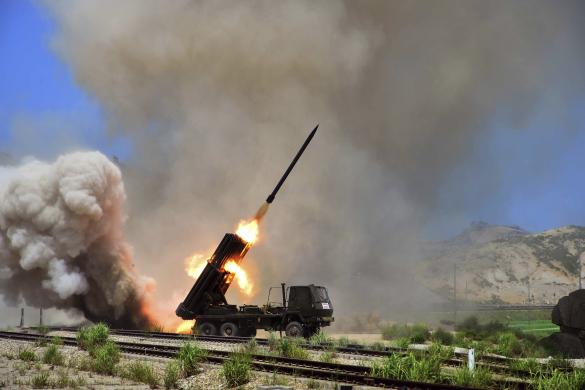
US and South Korean media reports cited intelligence and military officials as saying transporter vehicles carrying launching equipment had been seen on the move.
The test - which both Seoul and Washington officials warned could be of another intercontinental ballistic missile (ICBM) could coincide with the 64th anniversary of the end of the Korean War on July 27, reports said.
South Korea seeks rare talks with North to ease tensions
This is a public holiday in the nuclear-armed North and celebrated as Victory Day.
The two Koreas have remained technically at war since the three-year conflict ended only with a ceasefire rather than a full peace treaty.
"Movements by transporter erector launchers carrying (ICBM) launch tubes have been continuously observed in North Pyongan (province)," a South Korean government source was quoted as saying by the country's Yonhap news agency.
"There is a high possibility that the North may carry out (the test-launch) around the July 27 armistice day."
The North in 2014 marked the armistice anniversary by firing a Scud-B short-range missile on July 26.
Yonhap also cited a South Korean military source as saying Pyongyang may be preparing to test a new type of ICBM or an intermediate-range missile.
On Monday CNN cited a US defence official as saying the North appeared to be preparing for another missile test. That official said transporter vehicles carrying launching equipment were seen arriving at Kusong in North Pyongan last Friday.
The US network earlier cited US intelligence as indicating preparations for another test of an ICBM or intermediate-range missile.
Kusong has been the scene of past tests, including in May when an intermediate-range ballistic missile travelled more than 700 kilometres (435 miles).
Pyongyang triggered global alarm on July 4, US Independence Day, when it test-fired its first ICBM which experts believe can reach Alaska - a landmark development in its weapons programme.
The ICBM brings within reach Pyongyang's long-held dream of a missile that can deliver an atomic warhead to the continental United States, and presents US President Donald Trump with a stark challenge.
The North last week refused to respond to the South's offer to open dialogue to ease tension.
US bombers drill near Korea in show of force
"We're keeping close surveillance on the North for possible provocative acts", a South Korean defence ministry spokesman told AFP.
Yonhap also quoted a different Seoul government source as saying that an 1,800-tonne North Korean submarine in the Sea of Japan (East Sea) may be collecting data to prepare for a ballistic missile test-launch from the North's largest submarine.
The North last August successfully test-fired a submarine-launched ballistic missile.

1732569774-0/Baymax-(2)1732569774-0-165x106.webp)







1732105641-0/BeFunky-collage-(78)1732105641-0-270x192.webp)







COMMENTS
Comments are moderated and generally will be posted if they are on-topic and not abusive.
For more information, please see our Comments FAQ